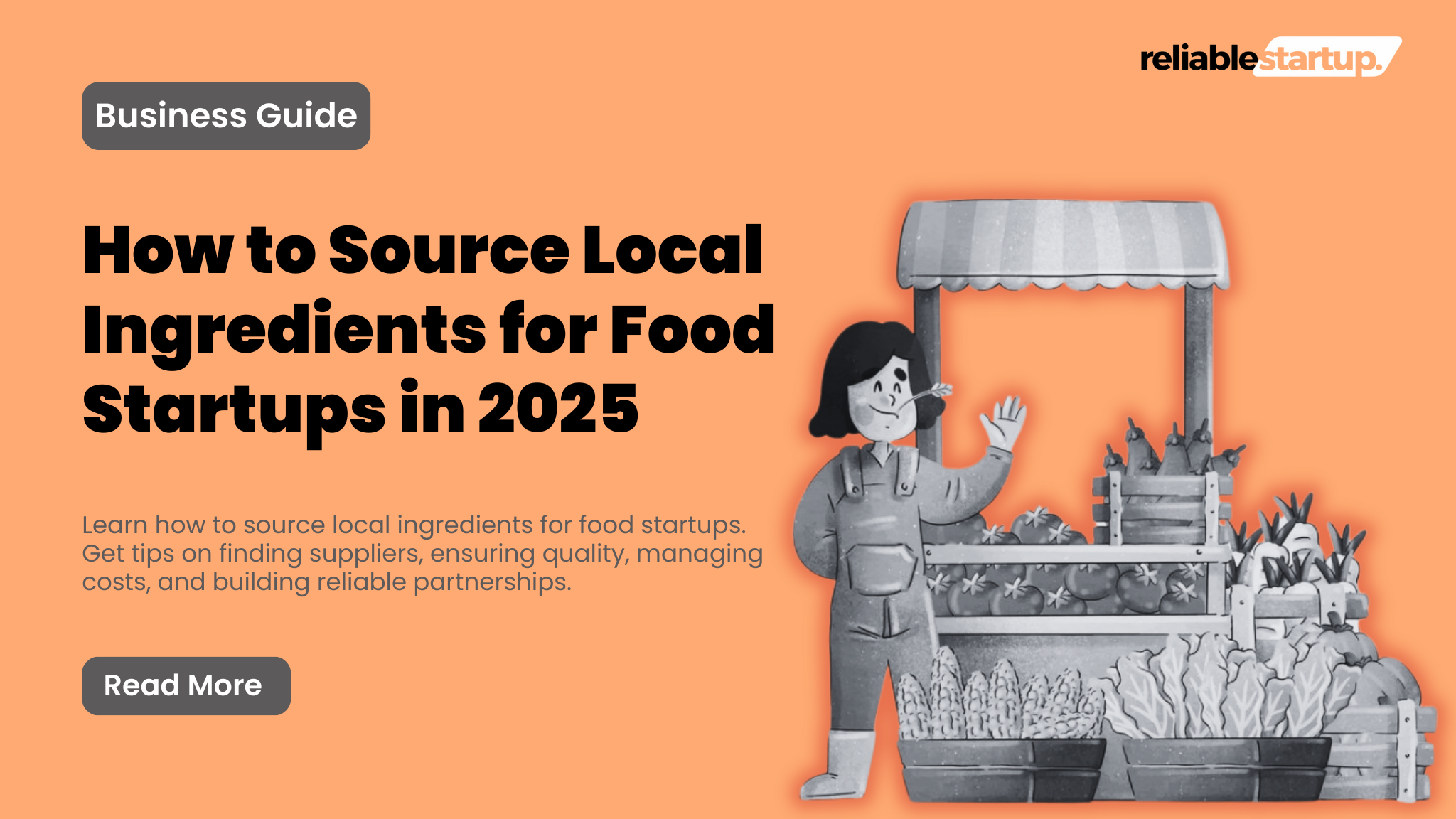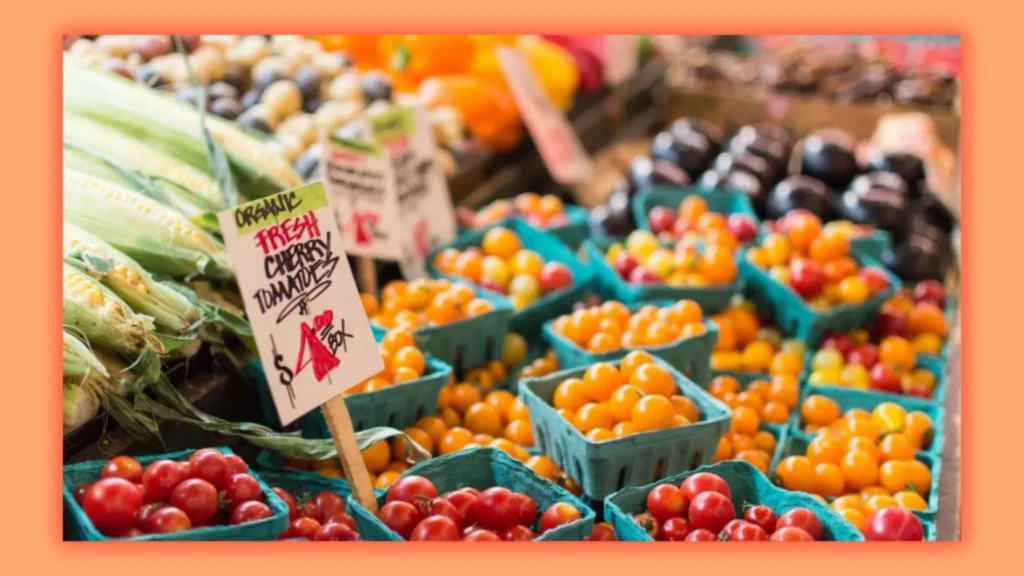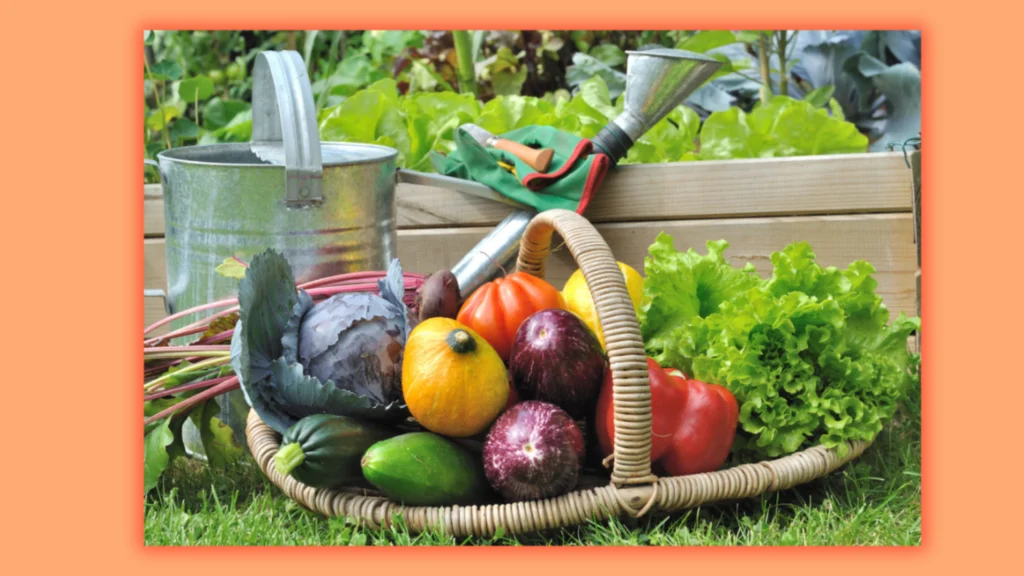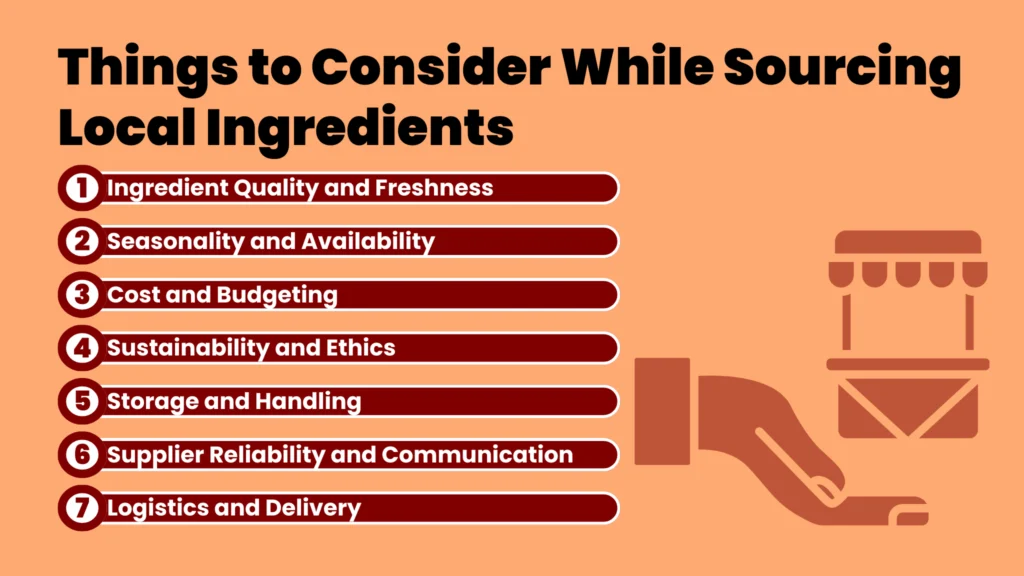How to Source Local Ingredients for Food Startups in 2025

Food ingredients are the most important part of your food business. Obviously, no ingredients, no food, no business!
But where do these businesses get their ingredients? If they buy like a regular customer from general stores, can they really make a profit?
Plus, can they even be sure about the quality of what they’re buying? So, they really need the best ingredients at the best prices, right? Because ingredients affect the taste, quality, and cost of their dishes.
To help the food business owners, we have a detailed guide on how to source local ingredients for food startups.
Let’s get started!
1. Identify Your Ingredient Needs
First things first—what’s on your menu? Make a list of all the essential ingredients. Be specific. Fresh basil? Organic chicken? Locally milled flour? Write it down.
Now, think about the seasons. Can you get tomatoes all year round? If not, what’s a good alternative? Maybe sun-dried or canned versions. Keep backups in mind.
Finally, quantity. How much do you need daily or weekly? Buying too much leads to waste. Buying too little means running out at the worst time. Balance is key!

2. Research Local Suppliers
There are various options to check when thinking about souring your food business ingredients. Have a look at what they are:
Farmers’ Markets
You can try farmers’ markets. They’re perfect for fresh fruits, veggies, and even homemade cheeses. You get seasonal produce directly from the growers. Plus, you get to know the farmers!

Agricultural Cooperatives
Check out agricultural cooperatives. These farmer groups sell directly to businesses. You get bulk deals, and they get fair prices.
Local Farms & Orchards
You can also think about working with local farms. They offer fresh, high-quality produce. You’ll get lower costs and support local farmers.
Specialty Suppliers
Speciality suppliers are an excellent option for those hard-to-find items. Local bakeries, spice vendors, and butchers often source ingredients nearby. You can get unique ingredients to make your menu stand out.
Wholesale Produce Distributors
You can also use wholesale produce distributors. They offer local ingredients in bulk at a discount. Great for when you need more supplies as your business grows.

Urban & Rooftop Farms
Consider urban & rooftop farms for fresh greens and herbs. These farms make use of city spaces to grow quality produce. It’s perfect if you’re in an urban area or need specific herbs.
Ethnic & Artisan Food Shops
If you want something unique, check out ethnic & artisan food shops. They carry special ingredients like spices or handmade goods. Great for adding authentic flavours to your dishes.
Government Agricultural Departments
Don’t miss government agricultural departments. They provide grants and resources to connect you with local suppliers. Plus, they have directories with reliable options.
Grow Your Own
You could even grow your own. Set up a small garden for:
- Herbs
- Veggies
- Microgreens
It’s cost-effective, and you get the freshest ingredients.

3. Verify Quality and Sustainability
Fresh doesn’t always mean clean. Ask about certifications. Is it organic? Free from pesticides? Ethically sourced? These details matter.
Take a farm tour if possible. See how they grow and store their produce. A supplier with good hygiene and sustainable practices is a keeper.
Think long-term if you’re building a food brand; sustainability matters. Partner with people who care about the planet. Your customers will appreciate it!
Things to Consider While Sourcing Local Ingredients

1. Ingredient Quality and Freshness
Freshness directly affects the taste and quality of your dish. Ask suppliers how they handle the products they supply. Try your level best to get the best quality ingredients.
2. Seasonality and Availability
Local ingredients are often seasonal. Be aware of which items are in season. You need to plan your menu accordingly.
This helps you avoid out-of-stock issues. Also, ensure your dishes reflect the best of what’s available.
3. Cost and Budgeting
Local ingredients can cost you more than mass-produced ones. But the important thing is they have better quality. It often justifies the price.
So, it’s better to work with your suppliers to negotiate fair rates. It’s especially important if you’re buying in bulk.
Also Read:
4. Sustainability and Ethics
Consider the sustainability practices of your suppliers. Are they using environmentally friendly farming methods?
Are they ethically sourcing their products? Sustainable sourcing can boost your brand’s reputation and appeal to eco-conscious customers.
5. Storage and Handling
Local ingredients require proper storage to maintain their freshness. Ensure you have the proper storage facilities.
Take special care of perishable items like:
- Dairy
- Meat
- Fresh produce
Plan for efficient handling and transportation to avoid wastage.
6. Supplier Reliability and Communication
Build strong, reliable relationships with your suppliers. Good communication ensures that you’re both on the same page about:
- Delivery times
- Quantities
- Any changes in product availability
A trustworthy supplier can be an invaluable partner in the long run.
7. Logistics and Delivery
Understand the delivery logistics. Some suppliers may offer delivery services. While others might require you to pick up the ingredients. Ensure timely delivery to avoid delays in your kitchen.
8. Flexibility for Changes
Markets change fast. You may need to adjust your ingredient sourcing to match new trends or needs.
Flexible suppliers can quickly adjust to your changing needs. This helps your business run smoothly.
9. Relationship with Farmers and Vendors
Direct partnerships with farmers and vendors can provide benefits beyond just price.
A strong, mutual relationship leads to special offers. It also provides product advice and flexibility in sourcing unique items.
Read Blog Post: 7 Actionable Steps for Scaling a Local Food Business
FAQs
1. What Are 5 Good Food Sources?
- Local Farms & Orchards – Direct partnerships for seasonal produce.
- Agricultural Cooperatives – Bulk purchases from farmer groups.
- Specialty Suppliers – Spices, baked goods, and meat.
- Community-Supported Agriculture (CSA) Programs – Subscription-based fresh food.
2. How to Find Local Food Suppliers?
To find local food suppliers:
- Visit farmers’ markets and talk to vendors.
- Check local farm directories online.
- Join business networks for food startups.
- Contact agricultural cooperatives for bulk buying.
- Reach out to government agriculture offices for supplier lists.
3. What Are the Sources of Local Food?
Some of the sources of local food are:
- Farms & Orchards – Direct farm-to-business supply.
- Rooftop & Urban Farms – City-based fresh produce.
- Wholesale Distributors – Bulk local ingredient suppliers.
- Ethnic & Artisan Food Shops – Unique and speciality ingredients.
- Grow Your Own – Start a small herb or veggie garden!
For expert advice and insights, get assistance from our amazing team at Reliable Startup. They know how to help startups grow. Contact us now!






